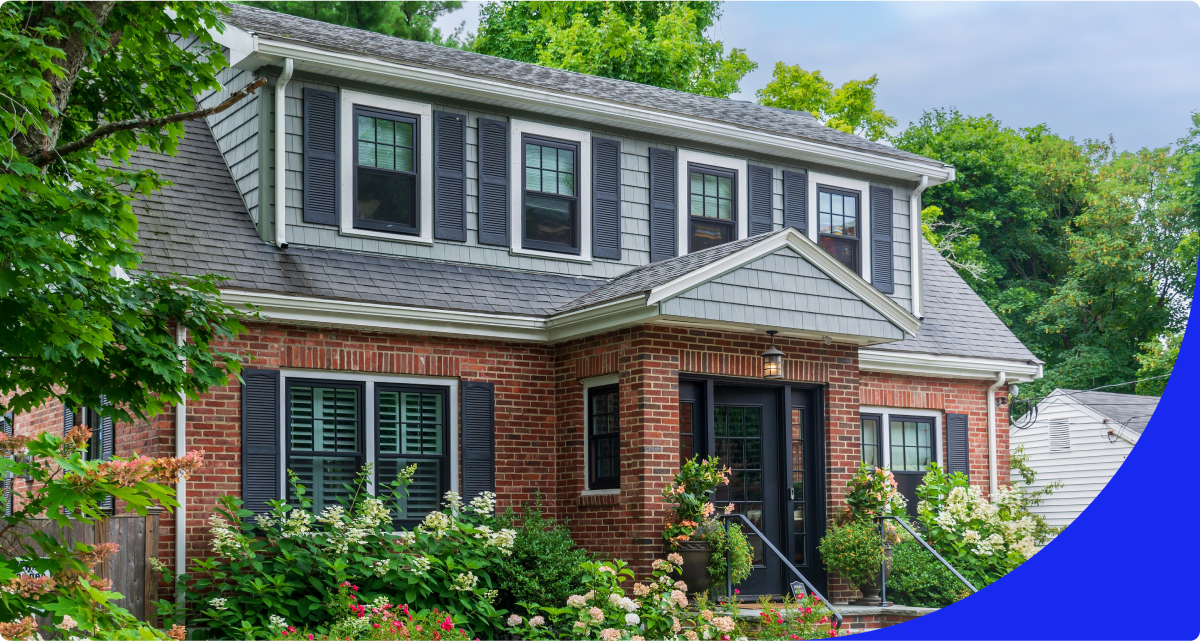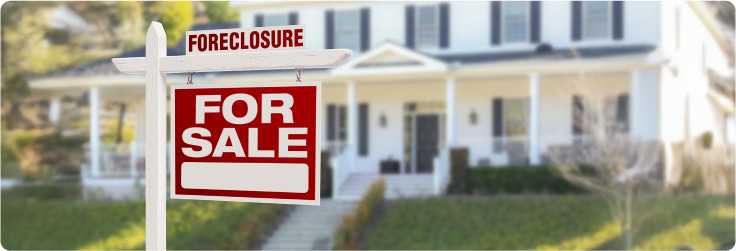Buying or selling and thinking about coverage?
Ask your real estate professional about American Home Shield Real Estate plans.
Buying a home is an exciting step, but it’s no secret that affordability is often a major hurdle for prospective buyers. For those willing to explore less conventional paths, foreclosed homes offer an intriguing opportunity to secure a property at a lower-than-average price.

Navigating the foreclosure market requires a clear understanding of the process, the potential benefits, and the risks involved. As part of our real estate guidance series, we’ll walk you through this overlooked side of the real estate market and what to know about buying a foreclosed home.
A home is usually “foreclosed” after the homeowner falls behind on their mortgage payments and discontinues paying. After multiple action steps from the lender—including notice to catch up on their missed payments—the lender takes ownership of the home.
Once that transfer of ownership takes place, most lenders want to sell the home as quickly as possible to remove it from their books and recoup the remaining balance of the original loan.
As a result, most lenders are willing to sell these foreclosed at a discounted price to attract motivated buyers.

Buying homes that are foreclosed is typically less expensive than buying a normal home, but there are multiple ways to buy—and different levels of buying competition at each level. Let’s take a closer look at a few types of foreclosure sales to get a better idea of how to buy a foreclosed home.
An auction happens when the lender forces the borrower to sell at an auction, which is usually open to the public. While you can still find lower-than-average prices at an auction, the competition may drive prices upward, reducing some of the savings you may otherwise see.
In a real estate owned sale, the lender takes ownership of the property and sells it on the market, much like any other listing.
Under a judicial foreclosure, the property is sold under judicial supervision. One of the most common types of judicial foreclosures is a strict foreclosure.
In a strict foreclosure, a court orders the homeowner to pay the mortgage within a set time period. If they fail to follow direction, the lender can repossess the home.
Preforeclosure is when the lender issues a notice of default to the homeowner, which may then lead to a short sale—when the lender sells the home for less than the remaining mortgage balance.
There’s plenty to love about buying a foreclosed home, and some of them aren’t so obvious! The major advantages to buying foreclosures:
Yes, as we mentioned earlier, most foreclosed homes sell for less than comparable homes on the market. With enough cash on hand, you could even buy the house outright, without taking on a mortgage to assist (though there are certain pros and cons to doing so).
Buying homes that are foreclosed can be a fantastic opportunity for investors looking to flip or buyers looking to build quick equity through renovations. Whether you’d like to buy a home to live in or sell, a foreclosure can be a wonderful investment opportunity—assuming the home doesn’t require major repairs after purchase.
Ask your real estate professional about American Home Shield Real Estate plans.

As enticing as a foreclosed home can be from the financial side, the cons could potentially outweigh the benefits. Some potential drawbacks you should watch to avoid buyer’s remorse:
In many cases, the buyer of a foreclosed home is responsible for any repairs or damage done to the home by the previous owners.
This may not be especially challenging if the home is in good shape or if you’re handy with a toolbelt, but it can be daunting if repairs are going to be costly. In a worst case scenario, construction costs could blow all of your savings!

Take note, first-time homebuyer
Most first-time buyers aren’t skilled at estimating construction costs or anticipating the amount of work that goes into a DIY repair. Read our deep-dive into first-time homebuyer mistakes to learn strategies to protect yourself in the homebuying journey!
Because the home is sold “as is,” you might not have the opportunity to pay for a full inspection before the purchase, which could mean missing major issues ahead of the sale.
If you don’t have an appetite for risk, this could be a tough problem to overcome.
Because the home is sold “as is,” you might not have the opportunity to pay for a full inspection before the purchase, which could mean missing major issues ahead of the sale.
Buying a foreclosed home could run you up against multiple unforeseen problems, including liens against the home for unpaid bills or taxes, title issues, and disputes over homeownership.
Before buying, have a title agent run a title search to identify existing conflicts that could snowball into major headaches or legal payments.
If you’re interested in finding foreclosed home in your area, follow these steps:
A real estate professional who’s plugged into your area’s foreclosures can become a powerful resource for finding affordable homes—and making a competitive offer before other potential buyers have a chance at the house.
There are plenty of online websites that list foreclosed properties. Keeping these resources bookmarked in your browser will give you easy access to finding the latest opportunities for buying foreclosures on a daily basis.
Both the U.S. Department of Housing and Urban Development (HUD) and Fannie Mae (a government-sponsored enterprise that makes homeownership more affordable) list foreclosures, so check their websites for updates.
Although it can be an exciting opportunity, buying a foreclosed home comes with a few risks. With an American Home Shield home warranty plan, you can proceed knowing that many of your home's major systems and appliances are covered in the event of everyday breakdowns.
By protecting repair and replacement costs for covered appliances and parts of systems in your home, a home warranty is an affordable defense against unknown pre-existing conditions. Buying a foreclosed home is a purchase you should feel confident about, and a home warranty plan can help provide that extra layer of reassurance.
Reach out to your real estate professional to discuss home warranties. And check out our blog for more real estate tips.
AHS assumes no responsibility, and specifically disclaims all liability, for your use of any and all information contained herein.